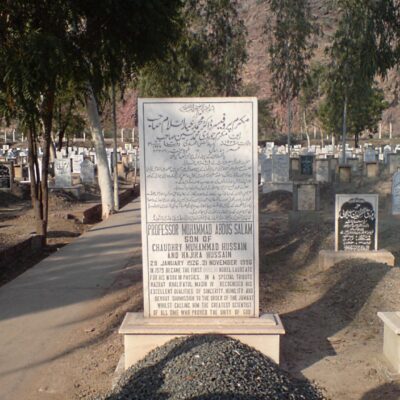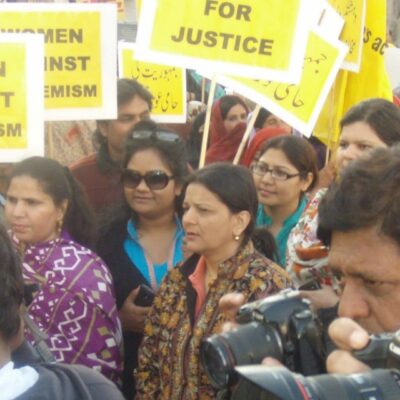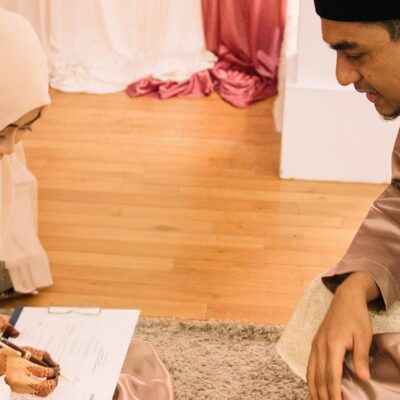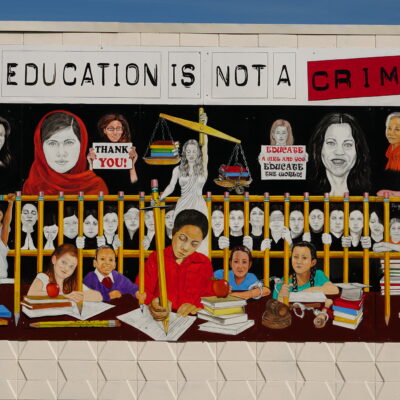The Maldives is the only entirely Muslim country where no law can be made contrary to a tenet of Islam and citizenship is granted only to Muslims. Every citizen is required to respect and promote Islam, and every citizen’s duty to promote democratic values and practices must not be contrary to the tenets of Islam. There is no room for any other religion in the Maldives.
There are specific Islamic clauses in the Constitution, but there is no specific mention of which madhab, a school of thought within Islamic jurisprudence, should be followed. This article explores how Maldivian Constitutional law favours a specific Islamic legal tradition/school(s) in law-making. I argue that, of the schools of Sunni (who claim that they follow Sunnah of the Prophet) and Shia (who claim that they are guided by Ali), the Maldivian Constitution favours a Sunni legal tradition.
The pre-constitutional era until the first Constitution (1932)
After the Maldives adopted Islam in 1153 A.C., the customary law of the pre-Islamic era, fooruvve rudin, was replaced or mixed with Islamic law and Islamic law was given precedence over customary law.
Some scholars write that at first, it was the Mālikī school of law. However, no examples or evidence have been presented to support the claim. The basis of this view could be due to the popular narrative about the origin of Abu al-Barakat Yusuf al-Barbari (who introduced Islam to the Maldives). This narrative was put forward by Ibn Battuta, a traveller from Morocco who visited between 1343 and 1344 (Hijri), was trained in Mālikī jurisprudence and was appointed as a judge in the Maldives. According to his narrative, al-Barbari was from Morocco, where the Mālikī madhab was prevalent. A second theory argued that it was Yusuf Sham al-Din Tabrizi, from Persia, who introduced Islam to the Maldives. As Ibn Battuta wrote, certain practices of the Maldivians were different from his and he intervened in certain practices and gave up on others, so it is unlikely that the Mālikī school was prevalent in the Maldives before Islam was first introduced. Moreover, historical research suggests that there were both Sunni and Sufi (until the early 1980s) influences, and Maldivians predominantly follow the Shāfiʻī school of Sunni Islam. Scholars argue this could be because traders and scholars from Southern Arabia and the south of India travelled to the Maldives as an intermediary stop on routes linking Southeast Asia and the Middle East. Foreigners were appointed as judges, and scholars from Hadramawt, Yemen, where Shāfiʻī madhab was prevalent, influenced the Maldives. For example, Bodu Thaaheedh (published in 1150 (Hijri)) of Edhuru Umar Maafaiykaleyfaanu consists of 445 raivaru (a form of Dhivehi poetry) about Islamic Tawḥīd based on Shāfiʻī madhab. Mohamed Jamaluddin, who lived and studied in Hadramawt, wrote Bodu Tharutheebu, one of the first fiqh books in Dhivehi (Maldivian).
From the first Constitution until the current Constitution
The first Constitution of the Maldives, adopted in 1932, was the country’s first written law. In a decree convening the People’s Majlis (the legislative body of the Maldives) to frame the first constitution, the Sultan Mohamed Shamsuddin III ordered that the Constitution must not contradict Islamic Shariah law. The Egyptian Constitution was one of the foundational sources of the Maldives’ Constitution and it endorsed the religion of Islam as the State religion.
The oaths of the Sultan, ministers, and members of the legislature bound them to respect the religion of Islam. Throughout Maldivian constitutional history, Sultans, cabinet ministers, and members of the legislative assemblies were required to follow a Sunni school of Islam, within Islamic jurisprudence.
The only instance where the Constitution is expressive on a specific madhab is in the First Amendment to the first Constitution. Article 74(2) of this Constitution required the Chief Justice to be a scholar of high distinction of the Shāfi‘ī madhab. The Chief Justice, who is the highest authority for the administration of justice is mandated with the propagation of the tenets of Islam. This implies that Shāfi‘ī madhab is the constitutional preference of the legal schools in Islam and may have influenced Islamic religious and legal practices.
Since the first Constitution, a series of laws have been passed codifying shariah and other criminal offences, including adultery and theft. However, these laws were largely silent on any specific madhab, except for two instances. Firstly, a law passed in August 1943 stated that the judge and the naibun (who act as judges) of the Department of Shariah are to be appointed by the State to administer laws in accordance with the Shāfi‘ī madhab. An amendment to this law was passed in August 1950, which stated that the judge, Naib al-Gāḍī, and Naibun of Malé (the capital city of the Maldives), are appointed by the State to administer laws in accordance with the Shāfi‘ī madhab.
Secondly, on 19 February 1944, a regulation was passed stating that a religious book must not contain any content that creates ‘madhhabī khilāf’. In this context, the term ‘madhhabī khilāf’” implies any content that creates any discord in the madhab of the Maldives.
Article 36 of the Constitution of 1968 stated that the President is the highest authority in the propagation of the tenets of Islam. Unlike the First Amendment to the first Constitution, the 1997 Constitution defined the ‘propagation of the tenets of Islam’ as the administration of the faith, beliefs and doctrines of Islam and the facilitation of the practice of the same. Because the President must be of the Sunni sect, this facilitated religious matters in accordance with Sunni Islam.
On 15 May 1969, a bill was passed with no specific madhab preference prescribing certain precepts of Islam (īmān (faith), iḥsān, tahārah (cleanliness and purity), prayers, fasting, zakat (official alms tax), ḥajj (pilgrimage) as compulsory for every Maldivian. In addition, laws were passed pertinent to the jury system, Attorney-General, the recitation of the Quran and religious education. However, no preference was given to any specific madhab.
On 3 July 1994, the Protection of Religious Unity Among Maldivians Act (Law Number 6/94) was adopted. According to Article 1 of this law, as Maldivians are followers of Islam, and in principle homogeneously follow a single madhab, both the government and the people must protect religious unity. Even though it states that Maldivians follow a single madhab, it does not specify which one. According to this law, preaching includes the procession of religious speeches and religious guidance and using means of media and publications in preaching. This law also sets licensing requirements for preachers which could only be issued for ‘Muslims’.
The 1997 Constitution was the first constitution that provided a definition for law. The term ‘law’ was defined to include ‘the norms and provisions of Shari’ah established by the Noble Quran and the traditions of the Noble Prophet, and the rules derived therefrom.’ However, it does not specify whether it means Shariah of Sunni or Shia sect. No other constitution or law provided a definition of law including Shariah as part of law.
During this era, as well as others, scholarly work contributed to the promotion of Shāfi‘ī madhab. Notable publications include Ali Edhuru Thakurufaan’s Zuhurulkamaalaathi fi Ahkaamil Ibaadaati (Bodu Tharutheebu) (published in 1353 (Hijri)). This was the most comprehensive book on Islamic jurisprudence (fiqh) in Dhivehi (Maldivian). Hussain Salaahuddin’s Irushadul Anaama and Mohamed Jameel’s Thauleem Dhiyana (first volume published in 1362 and the second and third volumes published in 1964 (Hijri)) were based on similar Islamic principles. These are the books from which Maldivians learned Islamic rulings and teachings for generations. There is also evidence that influential Maldivian writer Hussain Salaahuddin taught Arabic and Imam Nawawī’s Minhaj al-Tālibīn which is known as a manual of jurisprudence in Shāfiʻī fiqh.
Government policies enhanced the promotion of the Shāfi‘ī madhab during this era. The first government department responsible for religious affairs was mandated with the department of Shari’a established in 1920. Later, two departments established under the first Constitution were given control over religious affairs. The Ministry of Justice was mandated with the propagation of tenets of Islam while the Ministry of Religious Endowments (Wakf) was mandated with the administration of mosques, imams, Friday prayers and cemeteries.
When Mohamed Ameen was the Wali al-Amr (ruler) between 1 January 1953 to 21 August 1953, such as the death penalty and amputation were implemented. Sheikh Ibrahim Rushdi Al-Azhari, a prominent Shāfiʻī scholar in the Maldives was appointed to head the Ministry of Religious Endowments (Wakf). And, during the rule of President Maumoon Abdul Gayoom (between 1978 to 2008), religious affairs were first mandated to the justice ministry. However, in 1982, a department for religious affairs was established until the formation of a ministry for justice and religious affairs on 11 November 1993. This ministry lasted until the Supreme Council of Islamic Affairs was formed on 6 November 1996 . He was a graduate of Al-Azhar University in Egypt, and his policies were in line with Shāfiʻī madhab which was also prevalent in Egypt. Since the 1970s, the Salafi movement has started to exist. However, the government, especially during Maumoon’s rule, suppressed madhabs other than Shāfiʻī. Since the first government under the current Constitution, there has been a designated ministry for Islamic Affairs which has been headed by ministers who were educated and trained in Sunni educational institutions.
From the current Constitution onwards
Unlike the 1997 Constitution, which gave equal status to law and Islamic Shariah in its definition of law, the current Constitution of 2008 does not include Islamic Shariah in its definition of law. The current Constitution defines law as statutes enacted by the People’s Majlis, the Maldives’ legislative body, and assented to by the President and those regulations which are authorised by, and which fall within, the ambit of those statutes. Article 142 requires judges to rely on Islamic Shariah where the Constitution or other law is silent, which suggests that Islamic Shariah must be a complementary or secondary source. Interestingly, from the debates in the People’s Majlis, it is clear that Islamic Shariah was not included in debates around the first draft proposal of this provision. It was added later because members believed that Islamic Shariah should be a source of law in an entirely Muslim country.
However, despite the secondary status given to Islamic Shariah as a source of law, the current Constitution, for the first time in Maldivian constitutional history, adopted an Islamic repugnancy clause; a constitutional provision that requires legislation to conform to the tenets of Islam. Articles 10(b) and 70(2)(b), (c) limit law-making power subject to the tenets of Islam. According to Article 274 of the Constitution, a ‘tenet of Islam’ means those principles of Shariah [legal principles/aḥkām] whose authenticity is not in dispute from among those found in the Holy Quran and Sunnah of the Noble Prophet, and those principles deriving from these two origins.
Even though Article 274 of the Constitution does not specify a particular Islamic legal school, it does provide a definition of Islamic Shariah:
‘the ways preferred by the ahl-sunnah wa al-jamāʻa [people of the sunnah and the community] in relation to criminal, civil, personal and other matters found in the Holy Quran and Sunnah.’
As can be seen from the above, in the eyes of the Constitution, Islamic Shariah contains the preferred opinions of ahl-sunnah wa al-jamāʻa in all matters, ie ‘other matters found in the Holy Quran and Sunnah’; not only in relation to criminal, civil and personal matters. Moreover, the definition does not state that it is only the ‘rulings’ of the ahl-sunnah wa al-jamāʻa. Instead, it states their preference on all matters found in the Holy Quran and Sunnah. The only restriction is that the ways should be the majority’s opinion among the ahl-sunnah wa al-jamāʻa.
It should be noted that the first penal code adopted (including amendments to it) refers to Islamic Shariah but does not provide a definition of it. The Third Amendment (26/2015) to the Penal Code adopts the definition of Islamic Shariah in Article 274 (a) of the Constitution.
Unlike the previous consensus that the Maldives is predominantly Shāfi‘ī, legal developments since the inception of the current Constitution suggest that there is allowance given to recognise rulings of different Sunni madhabs. For example, in 2011, the Protection of Religious Unity Among the Maldivian’s Regulation was adopted under the religious unity law. This regulation established the criteria for issuing licenses to preachers which include that a preacher must be a ‘Muslim’. Even though it allows for foreign preachers to preach in the Maldives, it does not require the preacher to be of the Sunni sect. It also prohibits preaching against ijmāʿ, (consensus of opinion of the Muslim community or scholars on a point of Islamic law). However, this regulation sets out principles that must be followed in preaching on matters that carry ikhtilāf (juristic disagreement or disagreement on religious matters). In such matters, it also requires the preacher to take a stand on the opinion of the jumhūr (majority) of scholars. This suggests that a preacher is not obligated to preach based on a specific or single madhab.
Another example is Article 124 (a) (i) of the Fifth Amendment (Law Number 22/2021) to the Penal Code which criminalised accusing or portraying a person as anti-Islamic based on the behaviour or an opinion expressed by the person (on a matter of ikhtilāf) that does not contradict with the opinions of scholars of ahl-sunnah wa al-jamāʻa. The wording of this article interestingly suggests that opinions and behaviour, if within the Sunni sect, is permitted.
The First Amendment (Law Number 8/2014) to the Protection of Religious Unity Among Maldivians Act states that designing and compiling the Islamic school curriculum is compulsory and should inculcate a love for Islam and discourage “madhabī khilāf” (discord of the madhabs) in children and mandated Islam as a compulsory subject for students in Grade 1 to 10. By the Second Amendment (Law Number 6/2016) to the religious unity law, the Supreme Council for Islamic Fatwa replaced the Fiqh Academy of Maldives (which was established in 2009). The members of the Supreme Council must hold at least a level 9 qualification (postgraduate) in Islamic Fiqh, or comparative fiqh, principles of jurisprudence, or Islamic Shariah. The fatwas of the Fiqh Academy of the Maldives and the Supreme Council for Islamic Fatwa have also relied on rulings and opinions of different Sunni madhabs and their scholars.
The jurisprudence of the courts also reflects this approach since the current Constitution came into force. For example, in several cases, the courts have discussed and relied upon different opinions of Sunni madhabs and scholars. Their decisions were not only based on Shāfi‘ī rulings or scholars of Shāfi‘ī madhab.
Conclusion
Based on the historical research and the laws of the Maldives, it could be argued that Sunni Islam has been predominantly practised in the Maldives since the earliest written Islamic history. It is evident that even in the absence of written laws, Sunni Islamic legal schools were followed in the administration of justice and based on the teachings of Sunni scholars.
As the Maldives’ first written law is the first Constitution of 1932, which required the Sultan and members of the legislature to follow of the Sunni sect, it suggests that Sunni Islam was prevalent in the Maldives even in the absence of a constitution imposing Sunni Islam. Moreover, throughout most of Maldivian constitutional history, there has been a requirement that the president, cabinet members, members of the legislative assembly, and judges be followers of a Sunni school of Islam. However, there has been no mention of a specific madhab except in one instance in the Constitution (related to the appointment of Chief Judge) and two instances in the law (responsibility of Naibun and judges) where Shāfi‘ī madhab was preferred. The requirement that the president, cabinet members, members of the legislative assembly, and judges must be followers of a Sunni school of Islam suggests a constitutional intention that any person in a policy or law-making position must be of the Sunni sect. This would undoubtedly shape policies and laws in accordance with the precepts of the Sunni school.
The definition of law under the 1997 Constitution, which includes practices of the government, allows the government to impose, at least indirectly, Shāfi‘ī rulings and opinions in religious matters before the current Constitution.
Even though religious practices and rituals were predominantly uniform until the early 2000s, the Maldives has been experiencing doctrinal diversification within Sunni schools since then. More importantly, the inclusion of the opinions and preferred way of ahl-sunnah wa al-jamāʻa in all matters in Shariah in defining Islamic Shariah binds any policy or law to be in line within the bounds of a Sunni school. Due to this inclusion by the current Constitution, there is more flexibility and allowance for relying on different Sunni madhabs. With this flexibility, the conservative approaches to Shariah and hardline fatwas are not uncommon among the clerics.
To fully understand the impact of the Islamic clauses in Maldivian law shaping Islamic legal tradition, future research should focus on the empirical analysis of the relevant jurisprudence of the Maldivian courts and investigation of, most importantly, family and criminal law.
Image: Masjid al-Furuqān, Kudahuvadhoo, Maldives. May 3, 2019 (the day mosque opened). Copyright: permission granted by Ismail Ahusan.




